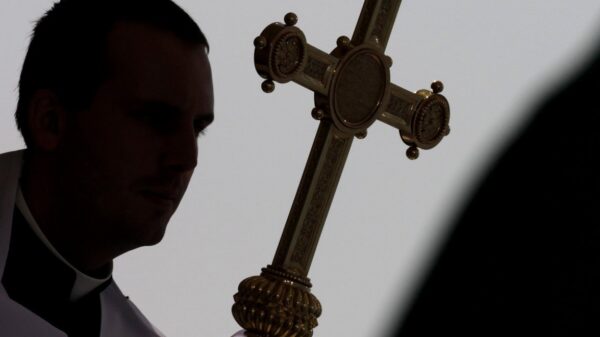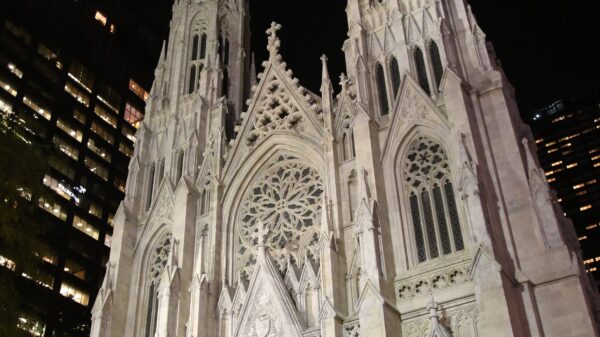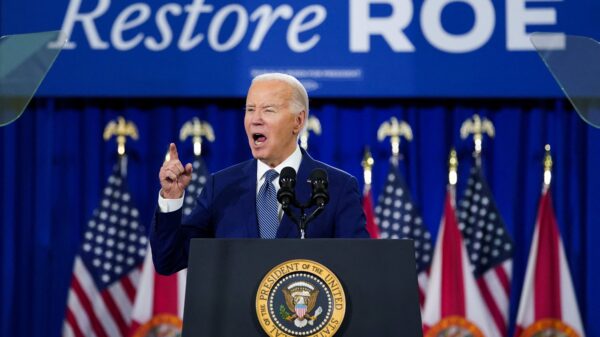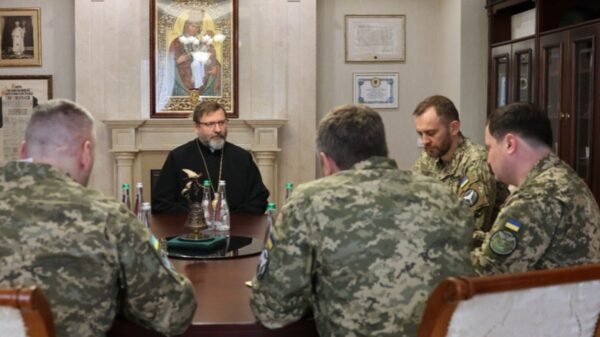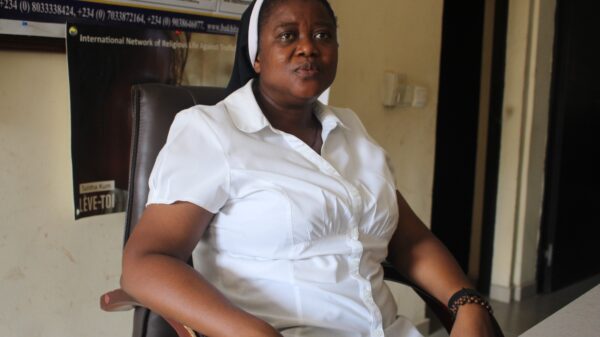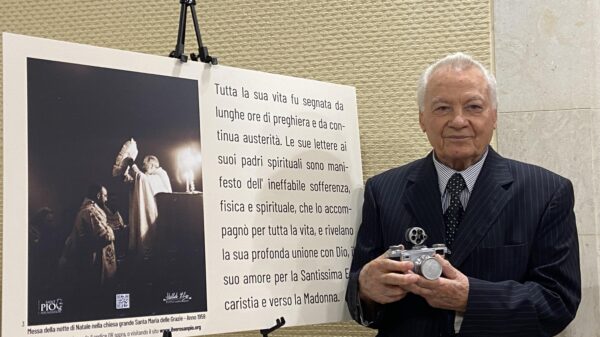VATICAN CITY (CNS) — Pope Francis called on the international community to ban surrogate pregnancy, calling it “deplorable” and a “grave violation of the dignity of the woman and the child, based on the exploitation of situations of the mother’s material needs.”
The path to peace requires respecting every human life, “starting with the life of the unborn child in the mother’s womb, which cannot be suppressed or turned into an object of trafficking,” the pope told diplomats accredited to the Holy See during his annual New Year’s address Jan. 8.
The pope told the ambassadors gathered in a formal, frescoed hall of the Apostolic Palace that greater efforts are needed to prevent conflict and war through dialogue, disarmament and respect for human rights.
“We must not forget that grave violations of international humanitarian law are war crimes, and that it is not sufficient to point them out, but also necessary to prevent them,” he said.
Speaking to representatives of the 184 countries that have full diplomatic relations with the Vatican, the pope said, “There is a need for greater effort on the part of the international community to defend and implement humanitarian law, which seems to be the only way to ensure the defense of human dignity in situations of warfare.”
International conventions aimed at “curbing the savagery of war” must be honored, he said.
The pope renewed his condemnation of terrorist acts and extremism and expressed his hopes for an end to bloodshed and tensions in the Holy Land, Lebanon, Syria, Ukraine, the South Caucasus, sub-Saharan Africa and Nicaragua.
“Dialogue requires patience, perseverance and an ability to listen, yet when sincere attempts are made to put an end to disagreements, significant results can be achieved,” he said.
“Perhaps we need to realize more clearly that civilian victims are not ‘collateral damage,'” but real people with names, faces and lives, he said. Perhaps then “we would see war for what it is: nothing other than an immense tragedy, a ‘useless slaughter.'”
The pope condemned “the enormous stock of available weapons” and called on all nations to pursue a policy of disarmament. “Weapons create mistrust and divert resources,” which are better spent pursuing “genuine global security,” eliminating hunger and promoting sustainable development for the entire planet.
“Wars, poverty, the mistreatment of our common home and the ongoing exploitation of its resources, which lead to natural disasters, also drive thousands of people to leave their homelands in search of a future of peace and security,” and often at great risk to their lives, he said. Many victims include unaccompanied minors, he added.
Migration should be regulated, he said, so people on the move can be welcomed, accompanied and integrated in a way that promotes their human dignity and respects the culture and security of host communities. People also have the right to remain in their homeland, which requires “the conditions for the effective exercise of this right.”
The path to peace also requires respect for human rights, as defined by the “self-evident and commonly accepted” principles in the Universal Declaration of Human Rights, the pope said.
“Regrettably, in recent decades attempts have been made to introduce new rights that are neither fully consistent with those originally defined nor always acceptable,” he said, such as “gender theory,” which is “extremely dangerous since it cancels differences in its claim to make everyone equal.”
“These instances of ideological colonization prove injurious and create divisions between states, rather than fostering peace,” he said.
The path to peace also requires increased dialogue, including on the political and social level, he said.
All citizens, especially young people, should consider voting to be “one of their primary duties to contribute to the advancement of the common good through a free and informed participation in elections.”
Interreligious dialogue remains key, he said, and it includes “the protection of religious freedom and respect for minorities.”
He decried the rise in antisemitism and the increase in persecution and discrimination against Christians, especially over the last 10 years.
An emerging challenge, he said, is the ethical use of new technologies so they can serve as “a source of encounter and mutual exchange, and an important vehicle for peace,” rather than being “a means of spreading division or lies, ‘fake news.'”
Pope Francis also encouraged the full involvement of everyone in responding to the climate crisis, saying the adoption of the final document at the United Nations Framework Convention on Climate Change (COP28) in Dubai “represents an encouraging step forward.”
Joe Donnelly, U.S. ambassador to the Holy See, told Catholic News Service that “it was an honor to be at the Vatican this morning” to hear the pope’s thoughts. “As always it is inspiring to hear his belief in peace for all people everywhere, and his personal pleas for the end of war and injustice.”
“This year marks 40 years of diplomatic ties between the United States and the Holy See. It has been a wonderful and productive relationship,” he said in a written statement.
“Our two nations share a strong connection and work closely together in many areas the pope highlighted this morning: protecting the environment, promoting human rights and dignity, and supporting international religious freedom,” the ambassador said.


